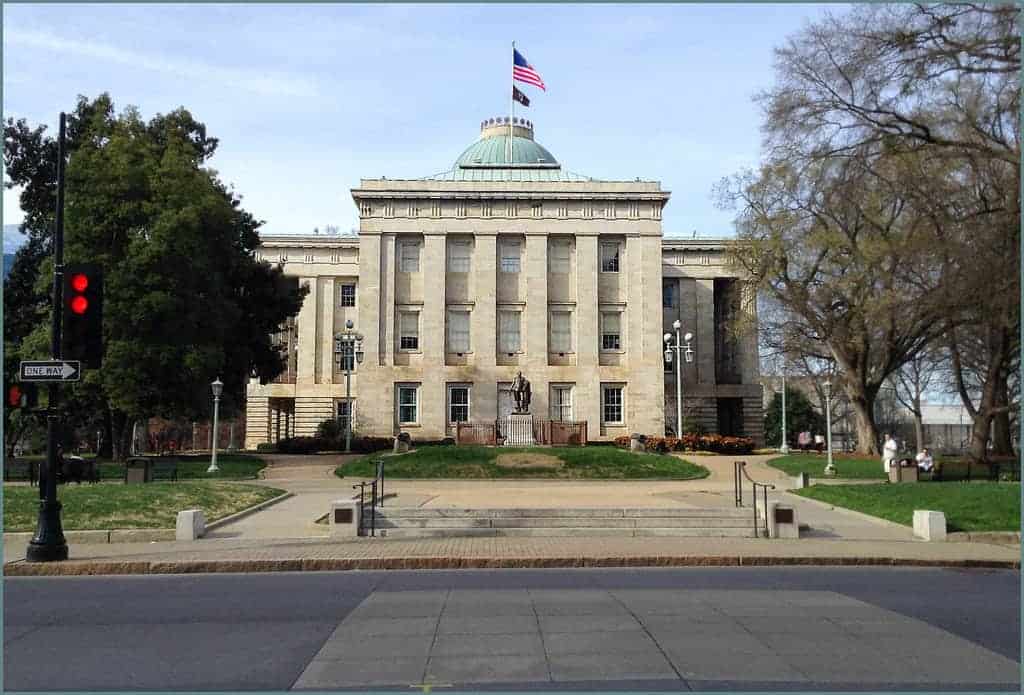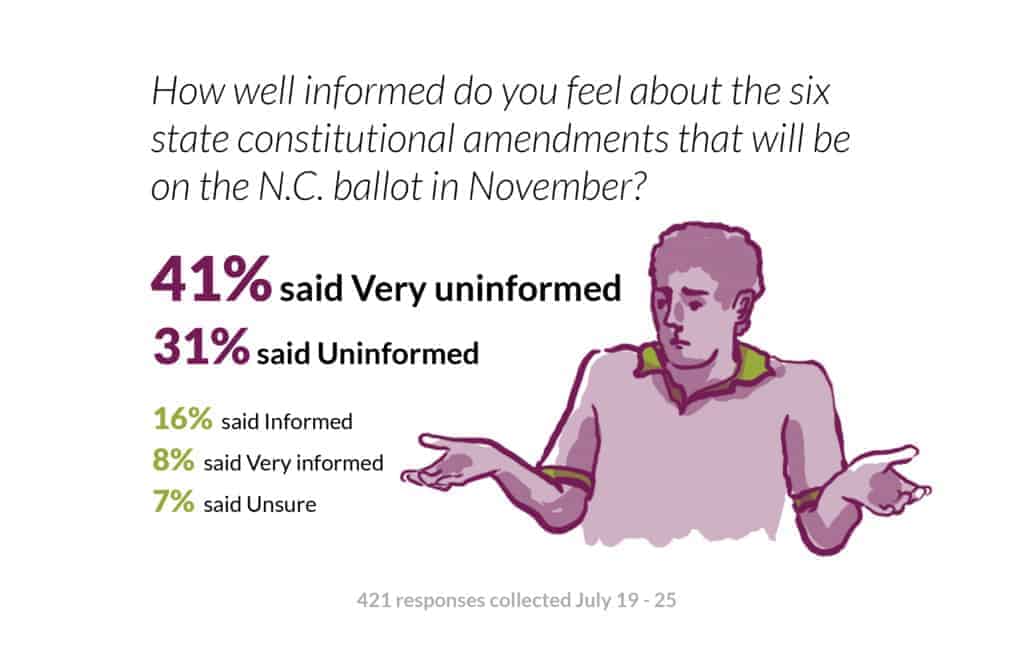
Earlier this month, we asked our Reach NC Voices members about six amendments to the state constitution that will be up for vote this November. We wanted to know which amendment would be most important, and after hearing back, we decided we wanted to learn more about how informed our members felt on the issues being brought to the ballot.
In our July 19 Reach Roundup newsletter, we posed our Question of the Week: How well informed do you feel about the six state constitutional amendments that will be on the ballot in November?
Response options included: very uninformed, uninformed, informed, very informed, and unsure. Here’s the breakdown of how participants answered our question and some of the comments we received:

“I’m very politically involved and I feel that I still don’t know what amendments are on the ballot.”
-Cathie from Raleigh, NC
“Voter ID is the most important. Most of the other proposed amendments are just distractions.”
-Margaret from Greensboro, NC
“Will a bipartisan board of Ethics and Elections put independent candidates and third parties at further disadvantage?”
-Marc from Charlotte, NC
“I would like to review these amendments before going to my polling place. To date, there has been no public presentation of these amendments to review them.”
-Harold from Raleigh, NC


